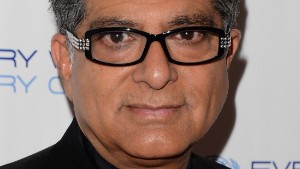The
road from “congress shall make no law” to tax-free churches,
congressional chaplains, and currency sanctioned by Christianity is
marked by complacency and conciliation on the part of the
non-believers.
The
argument, which you have no doubt heard plenty of times, that America
was founded by people who worshipped the washboard-stomached Jesus
seen in Pat Robertson's dusty sexual fantasies and who desired to
build a new nation devoted to the glorification of that filthy hippie
and his bizarre and thoughtless teachings is still pressed into
service today, trotted out like a moth-eaten shawl to be draped over
any number of the debates we face.
Despite
the obvious unconstitutionality of the entire premise, to this very
day the United States military pays official chaplains to serve in
every branch out of taxpayer-funded government coffers, and has had
authorization to do so since 1791. There is no interpretation of the
establishment or free exercise clauses of the First Amendment that
allows for a government-sanctioned chaplain of any denomination to
minister to the armed forces, which is self-evident without the
authority of Madison or Jefferson and their arguments to back it up.
Despite being challenged in the United States Court of Appeals, no
willingness has been shown to risk displeasing America's religious
theocrats by forcing the position to be filled by a non-combat
volunteer. The irony of a paid military chaplain swearing to uphold
the Constitution should be obvious without me having to elaborate on
it. Fortunately, those of us who would have no idea how to approach
addressing the problem are shored up by the efforts of organizations
like the Freedom From Religion Foundation and the Military
Association of Atheists, both of whom work not only to defend the
rights of the non-religious in both private and military life, but to
re-establish the secular values our country was, evidentially
speaking, established on.
 |
| We were pretty into Egyptian and Grecian style, though. Kind of our "Joy Division" phase. |
Deism was, to be profoundly generous, still defensible at the time of America's establishment. Collectively, we were unfamiliar with microbiology and the Beagle's monumental voyage was still half a century away. It could be forgiven, knowing what the best scientific information was, for a thinking person to come to the conclusion that the intrinsic order in the universe – “the way of things” – was so impossibly clockwork and perfect as to necessitate, at the very least, an unimaginable force to establish the observable laws things operated by. This is the “unmoved mover” you may have heard of, a current favorite of the creationist cults to explain away their utter mindless arrogance in the face of an utter paucity of any evidence. It may not only have been defensible or forgivable, it may have been the only logical and rational conclusion one could come to based on the evidence at hand. Theism, with its nonsense based on an intervening wrathful creator who performs miracles and picks favorites, was already in decline among the population possessed of the luxury of free time to participate in Enlightenment thinking. People understood that a prime mover argument can and does only lead you to an infinitely regressing repetition of the same question: “Who made the maker?” These volleys of logic were met by the church, then as now, with vehement retaliation and dismissals based on arguments from ignorance. Unfortunately for us but incredibly beneficial for the religious, the tools with which the notion of a creator could be abolished entirely were still generations off.
The Presidents
George
Washington appears to have been that most rare (and personally
valuable to myself) of all religious people: the private one. While
it is public record that he purchased pews in several churches and
attended services regularly while in Philadelphia, Washington chose
to spend his time at Mount Vernon more wisely. He attended services
sparsely there, according to biographer Paul Ford, and later
anecdotes seeking to discredit him publicly did so by reporting that
cards and drinking were engaged in by Washington and visitors to his
home most vigorously on Sundays. Washington almost never mentioned
God by name in public speeches, referring instead to the ideas of
Providence and a Grand Architect. His farewell address, which is most
commonly referenced as concrete proof of Washington's Christian
faith, was not written by him but by Alexander Hamilton, and
Washington in fact deliberately removed passages connecting morality
with divinity and avoided entirely addressing any particulars of his
belief. As for his behavior in solitude, both Hamilton and
Washington's staff write of interrupting his morning prayer, which
was evidently a regular and solitary-by-preference practice. It is
still contended that Washington introduced the oath of fealty to God
in the presidential inauguration, despite refutations from the
Library of Congress and Mount Vernon. People far more educated on
Washington's life than myself continue to argue from both sides of
the aisle exactly where on the spectrum from deism to Christianity he
actually lied, but insofar as this subject is concerned his exact
disposition is irrelevant. What matters is that if he was a devout
and practicing Christian, he kept it to himself.
 |
| And we revere him to this day... |
Thomas
Jefferson, as a retirement hobby to kill the time not spent founding
the University of Virginia as a bastion of higher learning unsullied
by religious influence, engaged himself by taking a scalpel to the
New Testament, removing any and all passages which he thought to be
unfounded, magical, or otherwise insulting to the intelligence of a
reasoned person. The resulting extant text, which is available to
all, is an impossibly-thin tome which tells a rather uninteresting
story of a young man who says things that irritate some while
endearing him to others. The final page of this story, which I find
the most edifying, is three paragraphs long and consists of Jesus
dying, being buried, and everyone leaving. No resurrection, no
fanciful rays of sunshine to be recreated in hideous oil paintings
for the next two millenia, but the relating of a man's death.
Furthermore, in the Virginia Statute for Religious Freedom (one of
the three things included on his obelisk as worth remembering him
for, his time as President notably absent) Jefferson writes clearly
on the errancy of religious faction having any influence in civil
discourse whatsoever. In dissolving any affiliation between the
colonies and the Church of England, Jefferson sought to prevent the
cudgel of a state church from being wielded against the citizens of
the new republic. The worst accusation that could be leveled at him
would be the aforementioned label of deist, as he describes a creator
of the mind and “departure from the plan” enforced on the
populace by religious leaders who sought – then as now – to
prevent the free exchange of ideas while lining their own pockets.
However, nowhere does he mention any thought that the universe was
created for him or anyone else, or that an intervening creator
answered prayers, affected the outcome of events, or had a preferred
sexual style. The personification of this deistic creator by
Jefferson in the Statute, sometimes feebly pointed to as support for
accusations of theism, can also be accurately dismissed as a poetic
device, seeing as he later gives the concept of truth the same
embodiment, albeit feminine.
 |
| Again, super respectful reverence is all we know how to do. |
The
Treaty of Tripoli & The First Barbary War
Securing
our independence brought the need to ensure our own security. The
treaties enacted by England to protect trade routes and crew
obviously no longer applied to our nation, and in 1797 John Adams
signed the Treaty of Tripoli into law. This treaty was to establish
our business and cautiously peaceful relationship with the Muslim
empire in the Barbary States, who consistently had great success in
seizing both our ships and their crew for their own use. The second
article of the Treaty, which I argue is second only to the First
Amendment in clarity and intent of purpose, states as follows:
“As
the Government of the United States of America is not, in any sense,
founded on the Christian religion; as it has in itself no character
of enmity against the laws, religion, or tranquility of Musselmen;
and as the said States never entered into any war or act of hostility
against any Mahometan nation, it is declared by the parties that no
pretext arising from religious opinions shall ever produce an
interruption of the harmony existing between the two countries.”
It's a
rather beautiful passage, I think, especially when compared to the
soul-crushingly indigestible language of our current legislation. But
beyond beauty, the most important thing about this passage is that it
clearly shows the intention of our nation to hold no brook with
religion. Adams may have been far too naive and trusting when
concerned with the Muslim theocracy and the ability of its adherents
to be trusted, and he was completely mistaken in implying that our
non-starter status meant we would never declare war against a
religious state, but it couldn't be more obvious that our founding
and principles are established as those of a secular nation founded
on the rule of law, not a terrifying theocratic nightmare based on
deluded religious texts.
 |
| It really is everything Hitchens warned us about. |
Proving
Adams' trust was wildly misplaced, the forces of Tripoli continued to
hijack and make slaves of American ships. Seeking explanation, Adams
and Jefferson traveled to Tripoli, where their only response was
passages in the Qur’an commanding “all nations which had not
acknowledged the Prophet were sinners, whom it was the right and duty
of the faithful to plunder and enslave.” Jefferson fought with
Congress, arguing that any money paid would only encourage repeated
offense. Upon Jefferson's election, Tripoli vastly increased the
amount of their demands, which Jefferson finally had the power to
refuse. The Navy, recently reconstructed, was at Jefferson's disposal
with the caveat to do no more than necessary to defend. Without
consulting Congress Jefferson sent the Navy to attack Tripoli,
beginning the four year conflict that would end with General Eaton's
marines and mercenaries brought the city of Derna to the ground in
1805. This is, by the way, the first time the American flag was flown
over a military victory in a foreign land, and the reason Tripoli is
in the second line of the Marine Corps Hymn.
The
Money
When
the time came, as it must in any successful fledgling rebellion, to
design a national seal representative of the ideals of the new
republic, Samuel Adams appointed an artist in Philadelphia called
William Barton. The now-familiar thirteen-layer pyramid crowned with
the Eye of Providence was what Barton delivered, with the wholly
unfamiliar-to-us latin phrases Deo
Favente
(“With God's Favor”) and Perennis
(“Everlasting”). There was no attempt on Barton's behalf to
obfuscate his intentions and belief that the Providential Eye
belonged to an intervening Christian god, which was clearly not good
enough for Adams.
 |
| It rocks your very world, doesn't it? |
Charles
Thompson, the Secretary of the Congress and a teacher of latin, was
tasked with refining the design to bring it more in line with what
Adams wanted. Thompson removed the religious references entirely,
substituting the phrases Annuit
Coeptis
(“To/He Approve/s Our Undertaking”) and Novus
Ordo Seclorum
(“New Order of the Ages”) while retaining the thirteen-layer
pyramid, Eye of Providence, and E
Pluribus Unum
(“One Out Of Many”). This adjustment fulfilled the requirements,
changing the intended message from “God gave us this and it's ours
forever” to “Can you guys fucking believe how lucky we were to
pull this off?”
 |
| "I gotcha Deo Favente right here, pal." |
The
ridiculous motto of the United States since 1956 has been “In God
We Trust,” a noxious phrase opposed by anyone who can recognize the
meaninglessness of the words even without recognizing the direct
contradiction to our nation's principles. This indelicate usurper is
a holdover from the Civil War, where the phrase was used by both
sides to claim divine support. Since at least 1873, this mindless
affirmation has been on our coinage by order of the Congress, not
appearing on the paper money until 1957. The same level of blind
fervor for empty religious-themed patriotism wouldn't be seen again
until the World Trade Center attack, when once again our Union
claimed the backing of – for all anyone can tell – the same god
who compelled our enemies.
The
Congress
In
examining religion's perfidious influence on democracy, specifically
in our representative bodies, it is helpful to compare the original
intent with the current reality. Given that, ideally, both the House
and Senate would be filled with individuals selected by their
communities as best suited to represent their interests and ideals,
one would expect the resulting bodies to reflect the broad spectrum
of ideas and attitudes seen nationwide. To examine that a little
closer, we can apply that most tenuous of metrics: the public opinion
poll. Opinion polls always make me wince the slightest bit, as there
are so many clumsily simple ways their data becomes skewed. From
convenience bias to acquiescence, these kinds of surveys have many
obstacles to assembling data into information, but in many cases they
are the best possible way to gauge what people say they think.
 |
| Which, unfortunately, assumes *they* know what they think. |
Pew
Research reported in 2012 that 16.1% of Americans who responded to
their poll self-identified as having no religious affiliation. As
mentioned, there is no reliable way to determine what percentage of
people who respond in the affirmative are lying to the pollster to
fulfill an imagined expectation, or claiming affiliation out of habit
or guilt. As you can infer for yourself, it is improbable that there
exist enough physical structures to house all the worshippers who
claim to be such fervent practitioners.
There
are 535 voting members of Congress, which would suggest that roughly
86 members of that august body should be atheist. If we further
narrow the field by disregarding the 5.8% of Pew respondents who felt
“religious unaffiliated” described their views (as opposed to the
rather confusing group labeled “secular unaffiliated”) we are
left with around 55 Congresspeople that should reliably be found
doing something useful on Sunday morning. This is, self-evidently, at
odds with the precisely zero (sometimes one, as of late, but not for
long) representatives of the nation's public who profess to be
unburdened by childish superstition, and flies in the face of the
decidedly Christian-flavored political grandstanding we must
constantly slog through.
 |
| It can only feed, never produce... |






